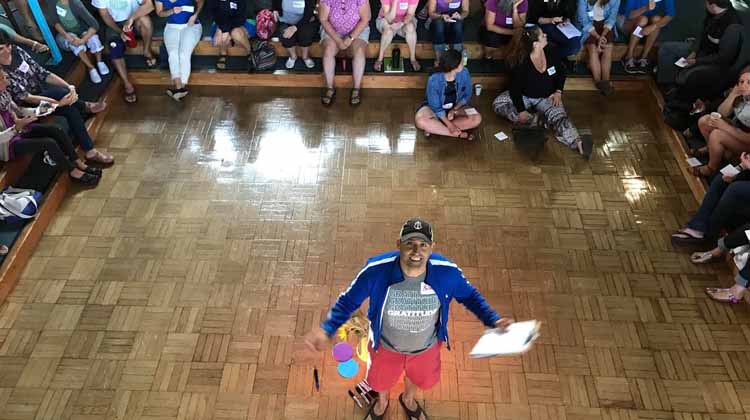This is part of a series of posts from nominees for our LifeChanger of the Year educator recognition program. We meet scores of fascinating LifeChangers every year who have interesting perspectives to share about children, education and life.
Vulnerability is not weakness. And that myth is profoundly dangerous.
-Brene Brown
At a recent staff retreat, I shared with my entire staff the things I struggle with. In my interactions with parents, staff and students, I make mistakes and I shared that with my community.
You know what? It didn’t bother me at all. I am, after all, human. I think vulnerability is missing, not only in today’s leadership, but generally in community life. We too often put on airs, aren’t reflective enough and lack a cohesion and trust, that allows us to be the truest form of ourselves in front of others. I get that being vulnerable is not easy.
Merriam-Webster defines vulnerable as, capable of being physically or emotionally wounded and open to attack or damage: vulnerable to criticism. None of that sounds good. However, when I avail myself to letting down my guard, it feels good. It’s a relief and it releases a burden.
This year as a school administrator has been a particularly challenging one. Not since my first year have I had so much thrown at me and have I carried such a burdensome load. It doesn’t mean I don’t love the work, I do. But it has prompted me to be more reflective on how to let folks know I need support in my duties of providing support and care to others.
It is in this sharing that I help connect to, and build, a more cohesive community. More importantly I believe I am exhibiting confidence and role modeling skills that I’d like see reflected. I can think of national leaders who would be served well by demonstrating a little vulnerability. The inability to do so, many would contend, is detrimental in myriad ways. The problem is, many would consider showing one’s vulnerability as being weak or passive, demonstrating a lack of strength. I would contend it is a sign of courage.
As an arts school we extol the virtue of taking risks. The risk of vulnerability can manifest in many ways. As stated above, it can be sharing what is hard for you. But it can also be asking for help, supporting a colleague through active listening (without offering judgement or advice), letting others take the lead or sharing personal stories or information about your life.
Really, the things that have the potential to make us vulnerable, are just things that make us human and connect us to others more deeply. That sounds like a place I’d like to work.
Learn more about Bobby Riley on his LifeChanger of the Year profile.
TC100537(0418)3

